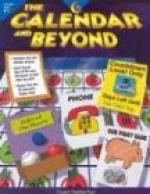|
This section contains 9,060 words (approx. 31 pages at 300 words per page) |

|
SOURCE: “Part I,” in The Calendar: Its History, Structure and Improvement, Cambridge University Press, 1921, pp. 1-27.
In the following excerpt, Philip surveys the historical measurement of time, reviews the development and reform of the Western calendar, and looks at several world calendars.
I
The Measurement of Time
Our knowledge of time is wholly dependent on measurement. Without the specification of magnitude or quantity the idea of time is meaningless. Now, we can measure time—physically—in one way only—by counting repeated motions. Apart, therefore, from physical pulsations we should have no natural measure of time. In particular the operation of the astronomical Law of Periodicity supplies us with the principal time units.
The primary periodic movements to which we owe our knowledge of time are the two movements of our own earth in which we necessarily participate. These are (1) the rotation of the earth on its axis...
|
This section contains 9,060 words (approx. 31 pages at 300 words per page) |

|


